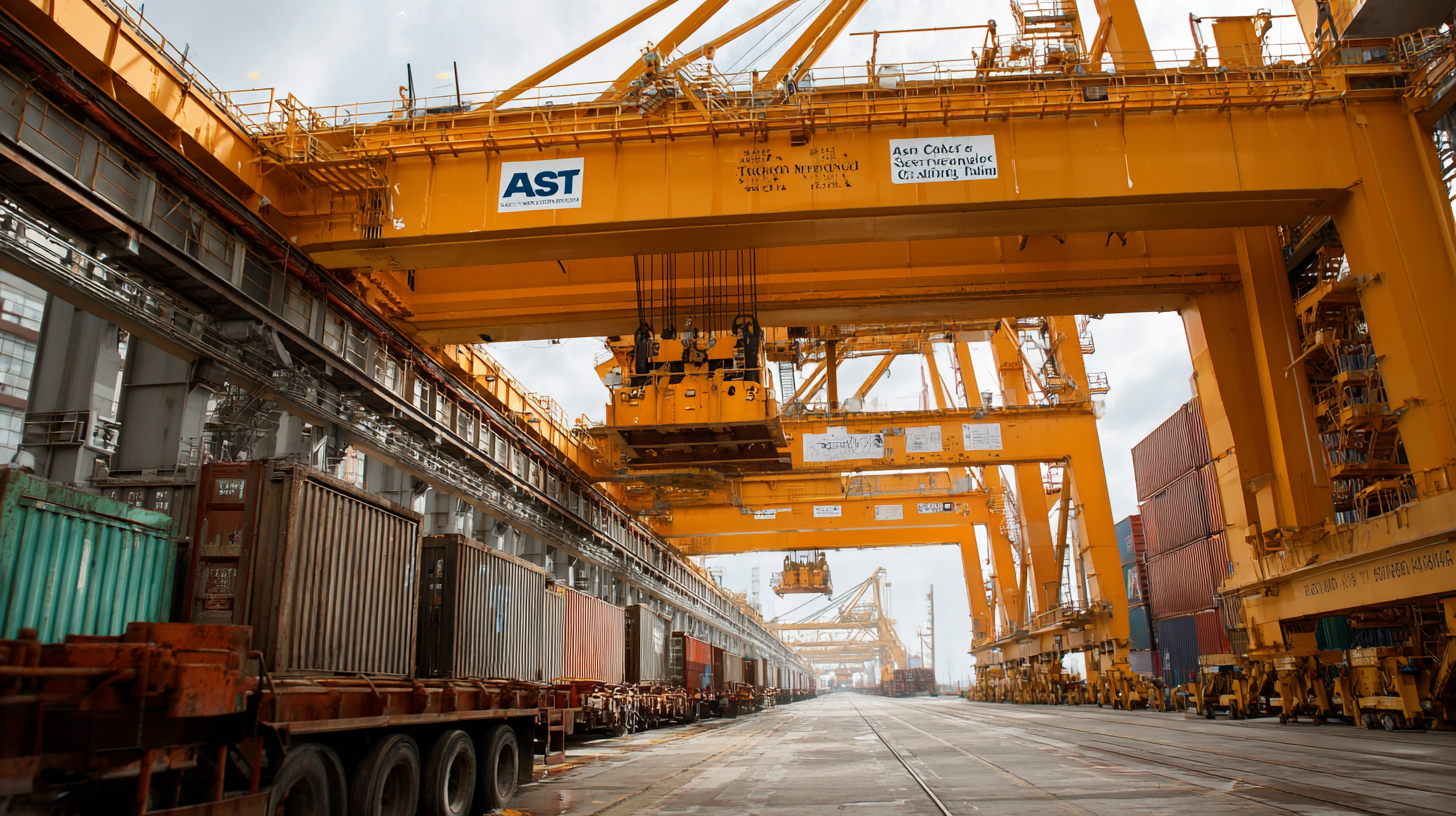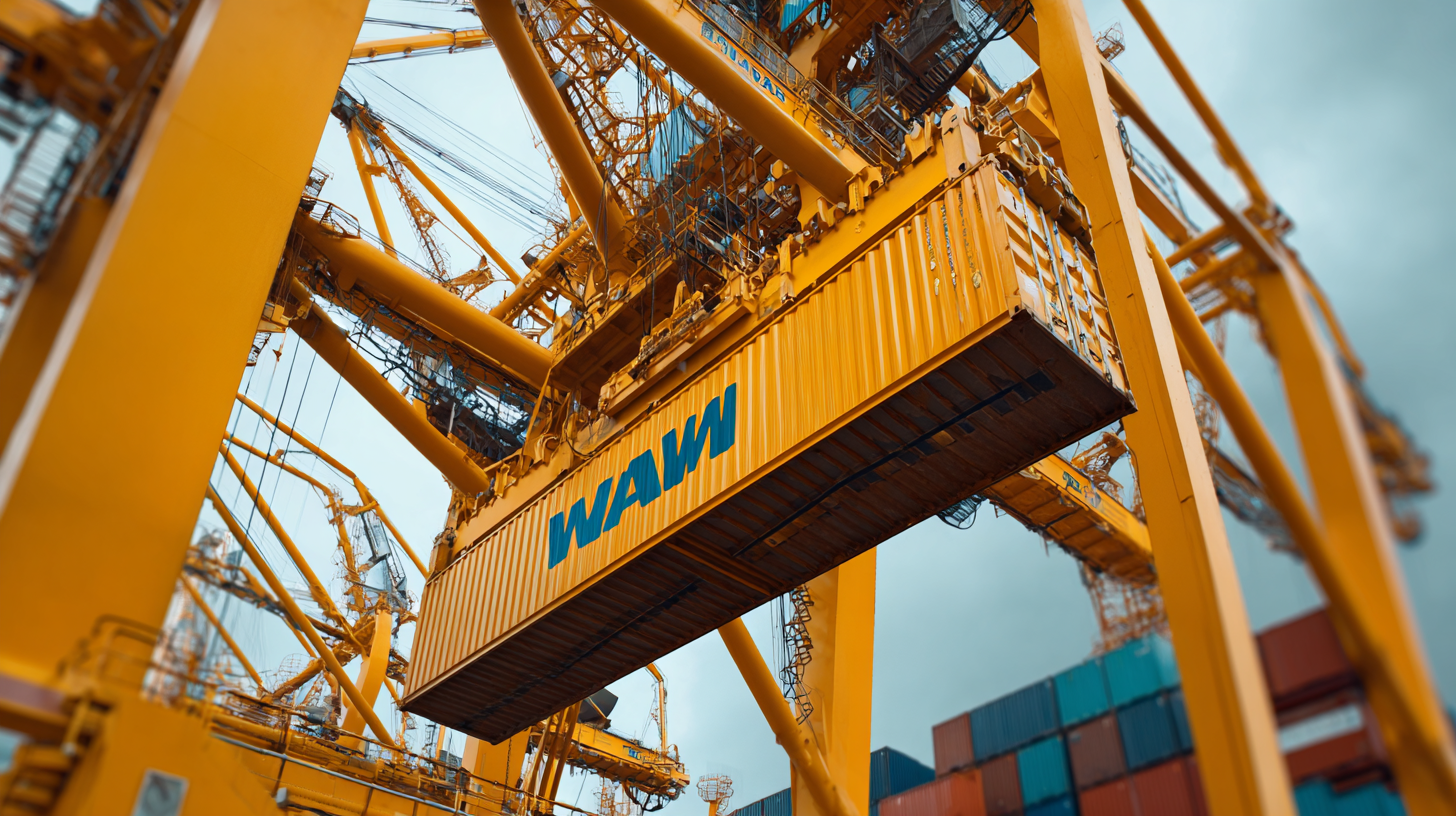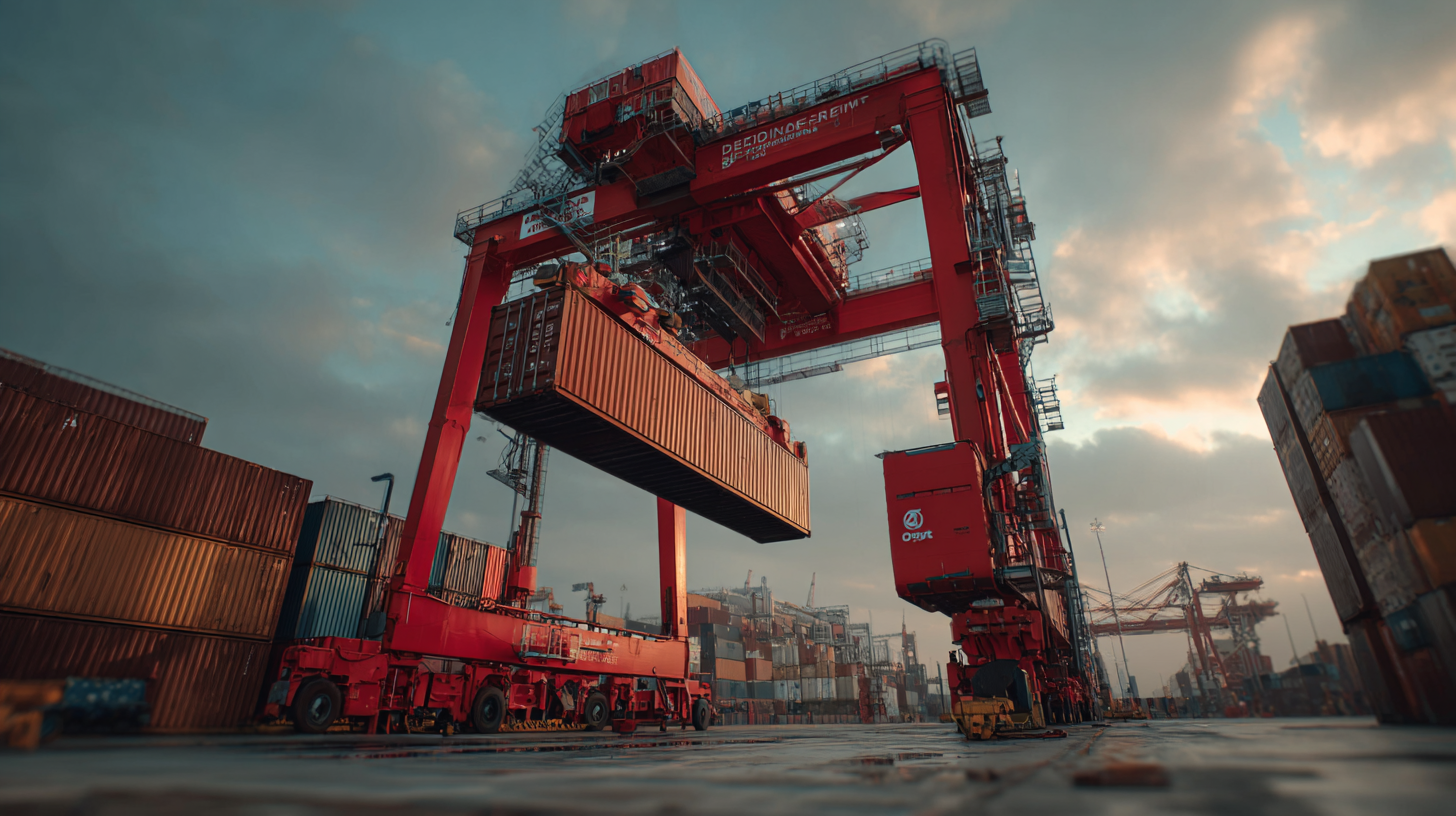Inquiry
Form loading...
-
Phone
-
Wechat

-
Whatsapp

In the competitive landscape of international trade, the importance of ensuring compliance with industry standards cannot be overstated, particularly when it comes to heavy machinery such as bridge cranes. According to the International Trade Administration, the global market for cranes was valued at approximately $31.4 billion in 2020, with a projected growth rate of 4.5% annually, highlighting the sector's significance and the need for adherence to quality and safety certifications. Certifications like the ISO 9001 and CE mark not only enhance the credibility of bridge crane manufacturers but also facilitate smoother entry into foreign markets, reducing trade barriers. Achieving best practices in certification can lead to increased reliability, safety, and efficiency, thereby fostering greater confidence among customers and partners alike. As businesses look to expand their reach in the global marketplace, understanding and obtaining the right bridge crane certifications will be pivotal for achieving international trade success.

In the realm of international trade, compliance with safety and quality standards is paramount, especially when it comes to heavy machinery like bridge cranes. Bridge crane certifications serve as a crucial pillar, ensuring that these machines not only meet local regulations but also adhere to international standards. This compliance not only mitigates risks associated with machinery failure but also enhances the credibility of businesses in a global marketplace. With rigorous testing and evaluation processes, obtaining these certifications fosters trust among clients and partners, facilitating smoother transactions across borders.
Furthermore, having recognized bridge crane certifications can provide a competitive edge in global trade. Companies equipped with certified equipment often find it easier to navigate the complexities of international shipping and regulations. This is particularly vital in regions where safety standards are strictly enforced, as non-compliance can lead to severe penalties and disruptions. By prioritizing certification, businesses can accelerate their market entry, reduce liability issues, and optimize their operational efficiency—ultimately paving the way for sustainable success in the competitive landscape of global trade.
This chart illustrates the recognition of various bridge crane certifications by countries around the world. It highlights the significance of certifications like ISO 9001 and CE Marking, which are essential for ensuring compliance in international trade.
Achieving operational efficiency is crucial for bridge crane operations, especially in the context of international trade. Key certifications play a significant role in ensuring that equipment adheres to industry standards, thereby enhancing productivity and safety. Research indicates that the crane rental market in Europe is expected to see considerable growth, with projections highlighting a compound annual growth rate (CAGR) of approximately 5.3% through 2033. This trend underscores the demand for certified crane operations as companies seek to optimize their logistical capabilities.

Moreover, the rise of autonomous cranes is transforming the landscape of heavy lifting, with the market projected to reach USD 5.6 billion by 2032, growing at a CAGR of 9.6%. These advancements, coupled with certifications tailored to automated systems, promise increased efficiency and reduced operational errors.
Enhanced training programs, including advanced simulator training, equip operators with essential skills, ultimately leading to safer and more effective bridge crane operations. By prioritizing the right certifications, companies can significantly improve their operational outcomes in this competitive environment.
Choosing the right bridge crane certification for your business is crucial to ensure operational safety and compliance with international trade regulations. First, assess the specific needs of your industry. Different sectors may require varying levels of certification based on the type of materials handled and the operational environment. For instance, an automotive manufacturing plant may have stricter requirements compared to a warehouse operation.
When selecting a certification program, consider the reputation and recognition of the certifying body. Certifications from well-known organizations can improve your credibility and facilitate smoother international transactions. It’s also essential to examine the training and assessment process involved in obtaining certification—look for programs that provide comprehensive training to ensure your team is knowledgeable about best practices for safety and efficiency.
Tips: Always stay updated on changes in certification requirements. Regularly review your certifications and extend them as necessary to keep up with evolving industry standards. Additionally, invest in ongoing education for your staff to maintain a high level of compliance, which can significantly enhance your business's reputation in international markets.
In the world of international trade, certifications for bridge cranes have become crucial indicators of a company's reliability and operational efficiency. Certifications not only ensure compliance with safety and quality standards but also serve as a competitive edge in the global marketplace. Industry trends show that businesses with recognized certifications often report higher success metrics in terms of trade volume and customer trust. As companies strive to achieve international trade success, emphasizing these certifications can effectively enhance their marketability.
**Tip:** When pursuing certifications, focus on relevant standards that align with the regions you plan to trade with. This strategic approach will help streamline the certification process and increase acceptance across borders.
Moreover, having the right certifications can significantly influence customer decisions. Buyers are more likely to choose suppliers whose products demonstrate recognized compliance, particularly in industries where safety is paramount. This trend is leading businesses to invest in certification processes as a pathway to not just meet regulatory requirements but also to boost their credibility in international markets.
**Tip:** Keep updated with the latest certification trends by attending industry conferences and workshops. Networking with other professionals can provide insights and foster collaboration that supports your certification journey.
| Certification Type | Region | Impact on Trade Success (%) | Time to Certification (Months) | Market Growth Rate (%) |
|---|---|---|---|---|
| ISO 9001 | North America | 25 | 6 | 4 |
| CE Marking | Europe | 30 | 8 | 5 |
| ASME B30.2 | Asia | 20 | 4 | 6 |
| OSHA Compliance | Global | 35 | 5 | 3 |
| ISO 45001 | International | 25 | 7 | 4 |
Navigating the complex landscape of international trade can be daunting, especially when it comes to bridge crane certification processes. Understanding the specific regulations that apply to your equipment is vital for compliance and operational success. Each country has its own set of standards, often influenced by both local and international safety regulations. Familiarizing yourself with these requirements is essential not only to avoid hefty fines but also to ensure the safety of your operations.
To streamline the certification process, it's beneficial to engage with experienced professionals who can guide you through the necessary steps. Start by compiling all required documentation, including design specifications and maintenance records. Additionally, regular training and workshops for your team can enhance their understanding of safety protocols and operational best practices. By prioritizing compliance from the outset, businesses can alleviate potential disruptions in trade, thereby enhancing their competitiveness in the global market.

